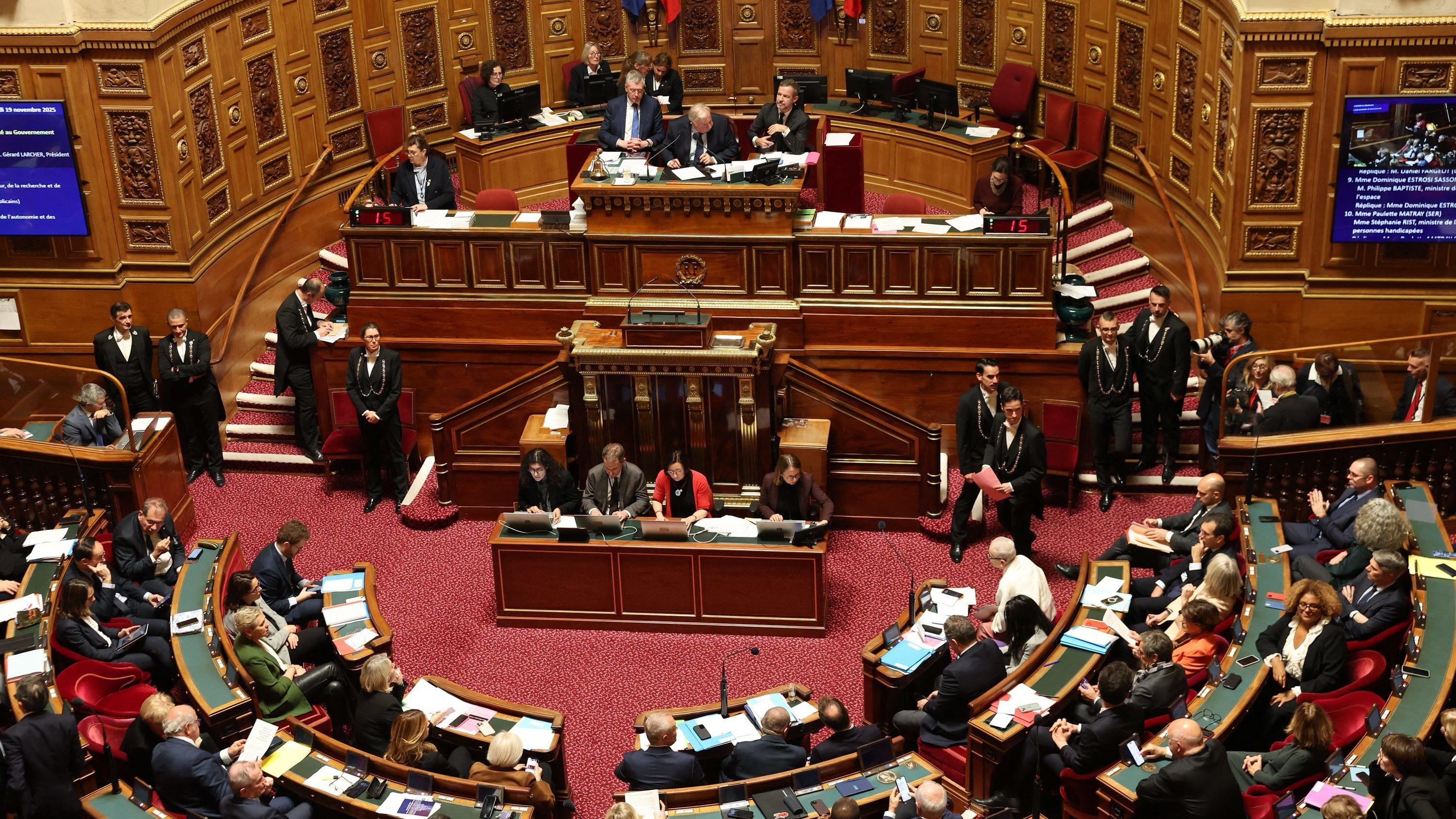French Senate Revises Social Security Budget Amid Pension Reform Suspension; Government Prepares Special Law for 2026 Budget Contingency
Amid Senate debates that include suspending pension reform, the French government plans a special law to ensure the 2026 budget passes if parliamentary talks fail by year-end.
- • Senate debates include amendment suspending pension reform within Social Security financing bill.
- • Public Accounts Minister Amélie de Montchalin calls for parliamentary compromise.
- • Finance Minister Laurent Panifous announces special law plan if 2026 budget is not approved by December 31.
- • Senate timeline constraints raise concerns over budget approval before year-end.
Key details
The French Senate has embarked on intense deliberations to revise the 2026 Social Security financing bill, including a significant amendment suspending the government’s pension reform. These debates began at the Palais du Luxembourg and have been marked by vigorous exchanges among senators, particularly those from the right-wing majority, who are poised to significantly alter the National Assembly’s earlier amendments.
Public Accounts Minister Amélie de Montchalin opened the session by expressing confidence in a responsible majority within Parliament, especially the Senate, to seek a compromise and resolve the current political instability. The Senate’s plenary vote is scheduled for November 25, with the Assembly having previously faced time constraints that prevented examination of the full text. Over 300 amendments remain under consideration.
Concurrently, the government is preparing a contingency plan for the 2026 budget process. Laurent Panifous, Minister for Relations with Parliament, announced during the Senate session on November 20 that if Parliament fails to finalize the budget by December 31, the government will propose a special law rather than resort to the use of ordinances, which have never been employed under the Fifth Republic. This special law would enable the state to continue collecting existing taxes and freeze expenditures, ensuring fiscal continuity amid political deadlock.
The timeline for completing the budget is tight. The Senate has indicated it cannot conduct a formal vote before December 15, limiting opportunities for compromise or a new reading in the Assembly. This raises concerns given ongoing disagreements and the difficulty in securing a parliamentary majority for the budget.
Prime Minister Sébastien Lecornu has previously underscored the importance of parliamentary responsibility, aligning with the government's approach to abandon the expedited 49.3 procedure in favor of thorough legislative debate. The government remains committed to achieving an approved budget but is preparing for all scenarios to maintain fiscal stability heading into 2026.
This article was translated and synthesized from French sources, providing English-speaking readers with local perspectives.
Source articles (3)
Source comparison
Date of Senate meeting
Sources disagree on the date of the Senate meeting where the announcement was made.
lemonde.fr
"The meeting occurred on December 20, 2025."
liberation.fr
"During a Senate meeting on November 20, Minister of Relations with Parliament, Laurent Panifous, indicated a preference against using ordinances."
Why this matters: One source states the meeting occurred on December 20, 2025, while another claims it was on November 20, 2025. This discrepancy affects the timeline of events related to the budget process.
Latest news
Katy Spicher Sues French State for Denial of Justice Over Unsolved 1983 Murder of Her Mother
French Public Sees Rise in Political Violence Amid Pre-Municipal Election Tensions
Businesses Drive French Economy Amid Rising Financial Challenges for Youth
France Climbs to 4th Place in 2026 Winter Olympics Medal Table After Biathlon Relay Gold
XV de France to Field Largely Unchanged Lineup Against Italy in Six Nations
France and India Deepen Strategic Partnership with Focus on AI Regulation and Defense Cooperation
The top news stories in France
Delivered straight to your inbox each morning.



